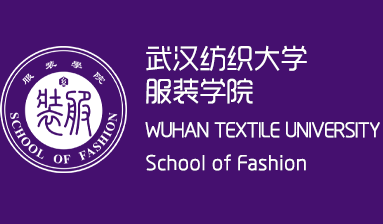On the evening of February 8th, the ‘1st Belt and Road Forum for the Advancement of China-Bangladesh Relations-2025’ was conducted on the Tencent online platform. The theme of the forum was ‘Fostering Cooperation between China and Bangladesh.’ Professor Tao Hui was specially invited to deliver a keynote speech, and she focused on ‘how to set up cooperation based on cross-culture and fashion sustainability.’ The School of Fashion at Wuhan Textile University is the institutional supporter of the forum as it focuses on the Belt and Road countries’ educational development.

During her speech, Professor Tao Hui highlighted that the School of Fashion at WTU is actively collaborating on educational development with Belt and Road countries to promote sustainable growth in the fashion industry. So far, the fashion school has cultivated more than a hundred international students in fashion design, many of whom are outstanding students from Bangladesh who have become the backbone of fashion education. As her speech focused on cross-cultural aspects, she mentioned that each member of the forum has a role in promoting the Belt and Road Initiative to foster sustainable practices across countries, cultures, and industries. In addition to the Belt and Road Initiative, which aims to connect China with Asia, Africa, and Europe through infrastructure, trade, and cultural exchange, it provides a unique platform for sustainable fashion collaboration.
Professor Tao Hui’s speech focused on three key aspects. First, it emphasized establishing a global fashion ecosystem through a common platform for open communication among industry leaders, designers, artisans, educators, and policymakers under the Belt and Road initiative. Second, merging traditional knowledge with cutting-edge technology offers an opportunity to integrate sustainable practices with modern technological innovations. Finally, the education system can play a vital role in ensuring the long-term success of sustainable fashion. She mentioned that as we pursue cross-cultural cooperation, we must invest in knowledge-sharing programs that promote the understanding of sustainable fashion practices across borders. This can include workshops, design schools, and online platforms that provide training in both the environmental and cultural aspects of fashion.

In this forum, to get new ideas and broaden perspectives, six professors from Chinese and Bangladeshi universities served as keynote speakers alongside six outstanding Bangladeshi scholars associated with Chinese universities, who presented their innovative proposals for developing the relations between both countries. Professor Tao Hui, along with Professor Dr. Gour Gobinda Goswami, Pro Vice-Chancellor of Uttara University; Professor Saifur Rahman, an independent textile education expert from Bangladesh; Professor Md. Rubel Mahmud from Patuakhali Science and Technology University, Bangladesh; Dr. Md. Sultanul Islam from Uttara University, Bangladesh; Dr. Miraz Ahmed from the School of Economics at Guangdong University in China; and BCYSA president Md. Zannatul Arif shared their insights to promote cooperation. Fostering cooperation between China and Bangladesh serves as a collaborative pathway for sustainable growth and innovation. The primary goal of this forum is to facilitate knowledge exchange, encourage collaboration, and explore innovative solutions to strengthen the relationship between China and Bangladesh.
Professor Dr. Gour Gobinda Goswami praised the reputation of the WTU School of Fashion and expressed his willingness for further collaboration, as Uttara University has a Fashion Design and Engineering department. Additionally, Professor Saifur Rahman conveyed his gratitude to Professor Tao Hui for his delightful visit to Wuhan Textile University in 2014 and the successful collaboration over the years. As the initiator of the forum, Dr. S. M. Minhus, a foreign faculty member of the School of Fashion at WTU, delivered special remarks to the esteemed guests, proposal presenters, and audience. Dr. Minhus also served as the BCYSA vice president and team leader of the Belt and Road Training Academy.
For over ten years, the School of Fashion has developed collaborations on sustainability education with more than ten international universities. This has established a strong foundation and encouraged enthusiasm for pursuing broader and deeper collaborations in sustainability education. In the future, the fashion school will place greater emphasis on collaborating with countries along the Belt and Road in areas such as cooperative research, sustainable fashion education development, and school-enterprise cooperation for talent cultivation.

(Note: The Bangladesh-China Youth Student Association (BCYSA) is a welfare organization and social platform. Its purpose is to promote the philosophies, cultures, and policies of both countries while fostering a positive relationship through all possible effective activities. Members of BCYSA aspire to be dedicated and visionary ambassadors of China in Bangladesh, working to enhance cooperation between the two nations and deepen understanding among the people of these two great, friendly countries, all while representing the legitimate aspirations and rights of Bangladeshis living in China. BCYSA platform https://www.bcysa.org/aboutus)



